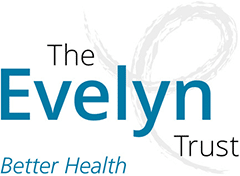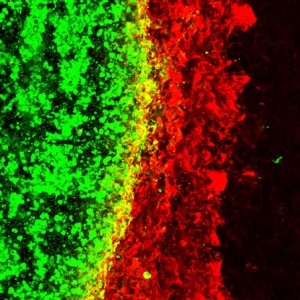An Evelyn Trust-funded scientist has been awarded a Medical Research Council (MRC) Clinical Research Training Fellowship. Dr Matthew Routledge, an Infectious Diseases and Medical Microbiology trainee based in Cambridge, will begin a PhD in January after he was successful in the most recent round of MRC funding. The pilot data for his application was acquired during an Evelyn Trust Clinical Research Fellowship, held at the University of Cambridge.
Of his award, Matthew said: “I’m immensely grateful to the Evelyn Trust for their support. I had unfortunately been unsuccessful at a previous attempt to obtain PhD funding, but had a vision for the direction we needed to take. Without the Fellowship, there is no way I could have had the time and space to develop my ideas under the supervision of Prof Menna Clatworthy and Dr Andrew Conway Morris. Without it I would unfortunately have had to probably give up on my ambition to pursue academic research.”
The research
Staphylococcus aureus (S. aureus) infection been estimated to cause 1.1 million deaths worldwide annually, making it the bacteria causing the second largest number of deaths, after tuberculosis (1.6 million deaths). Given failures in effective vaccine development and the rising incidence of resistant strains (e.g. MRSA), S. aureus remains a major challenge to human health. One of the key features of thisinfection is the formation of abscesses, bacteria and pus-filled lesions with a fibrous capsule. These form in a broad range of tissues, from the superficial (e.g. skin) to the visceral (e.g. muscle, brain, lung, liver). S. aureus abscesses are very slow to resolve and often require surgical drainage and/or prolonged courses of intravenous antibiotics. In turn, this can lead to antibiotic resistance and other harms. The costs for treating these infections can be prohibitive for health systems in developing economies. Additionally, in the developed world these infections significantly impact marginalised communities (e.g. intravenous drug users) and frequently cause outbreaks in institutions (e.g. prisons).
Despite being a common and serious form of Staphylococcal infection, the biology of abscess has been remarkably unexplored, particularly from the perspective of how the immune system resolves these infections. The aim of this project is to deliver a detailed characterisation of the key steps involved in how the body naturally resolves these infections in the skin. Insights gained from this will allow the researchers to identify new treatment approaches for these difficult infections, helping them resolve faster. This work aims to improve outcomes for patients and reduce reliance on prolonged antibiotics and surgery.
Rebecca Wood, Charity Director at The Evelyn Trust, said: “The Evelyn Trust would like to congratulate Dr Routledge for being awarded the prestigious MRC Clinical Research Training Fellowship. This remarkable achievement is a testament to Dr Routledge’s outstanding dedication and contributions to the field of medical research. The Evelyn Trust is proud to have been part of Dr Routledge’s research journey and looks forward to his future contributions to medical science. This accomplishment is not only a reflection of his unwavering commitment but also a testament to the collaborative spirit of the research community.”

